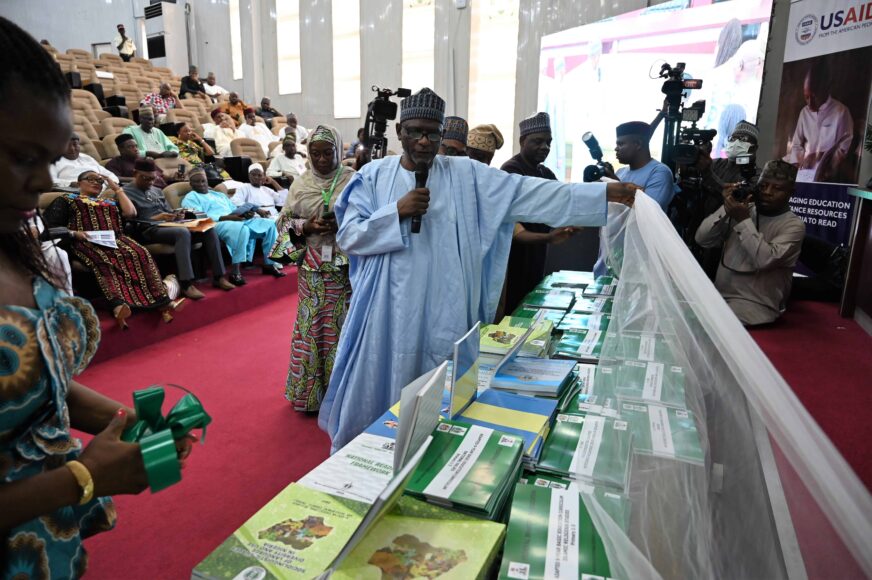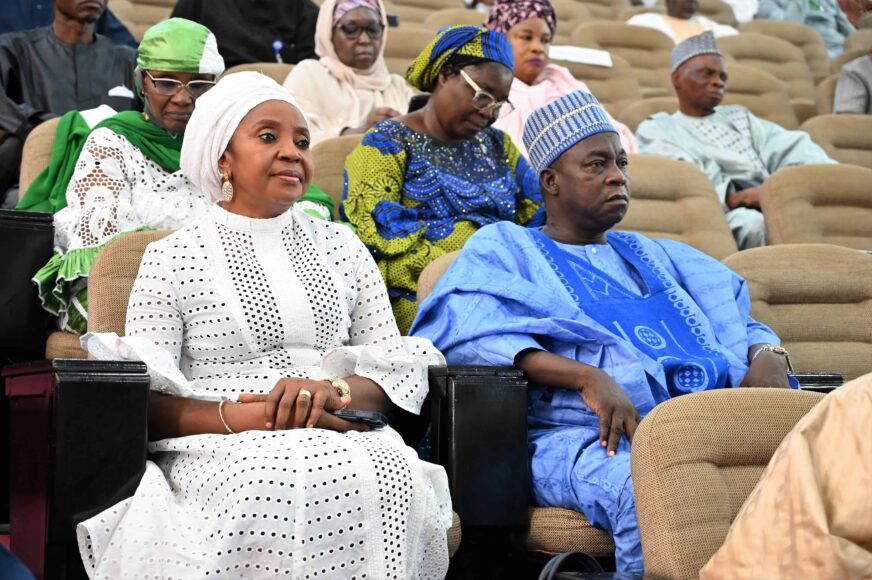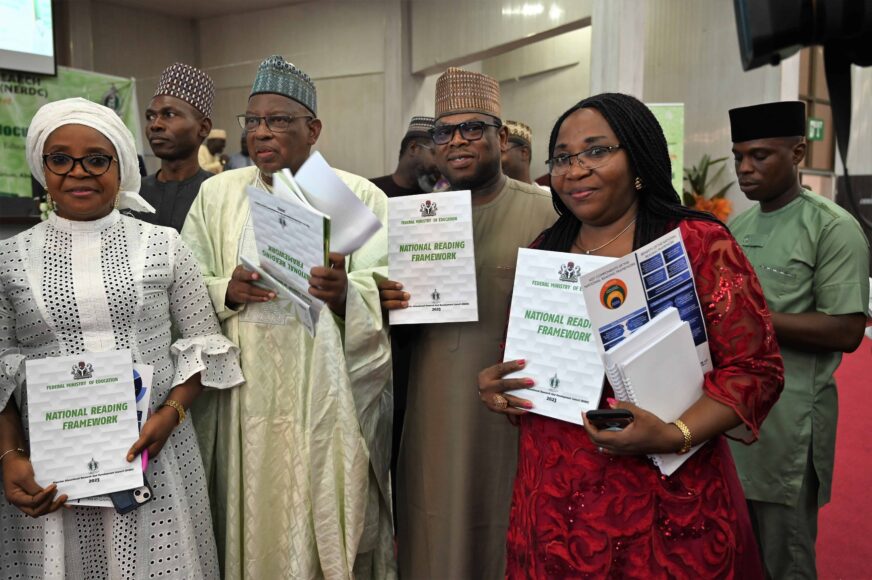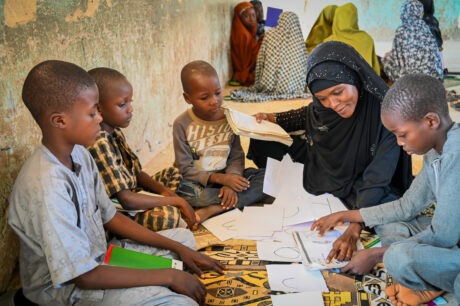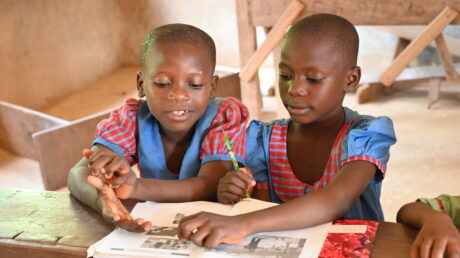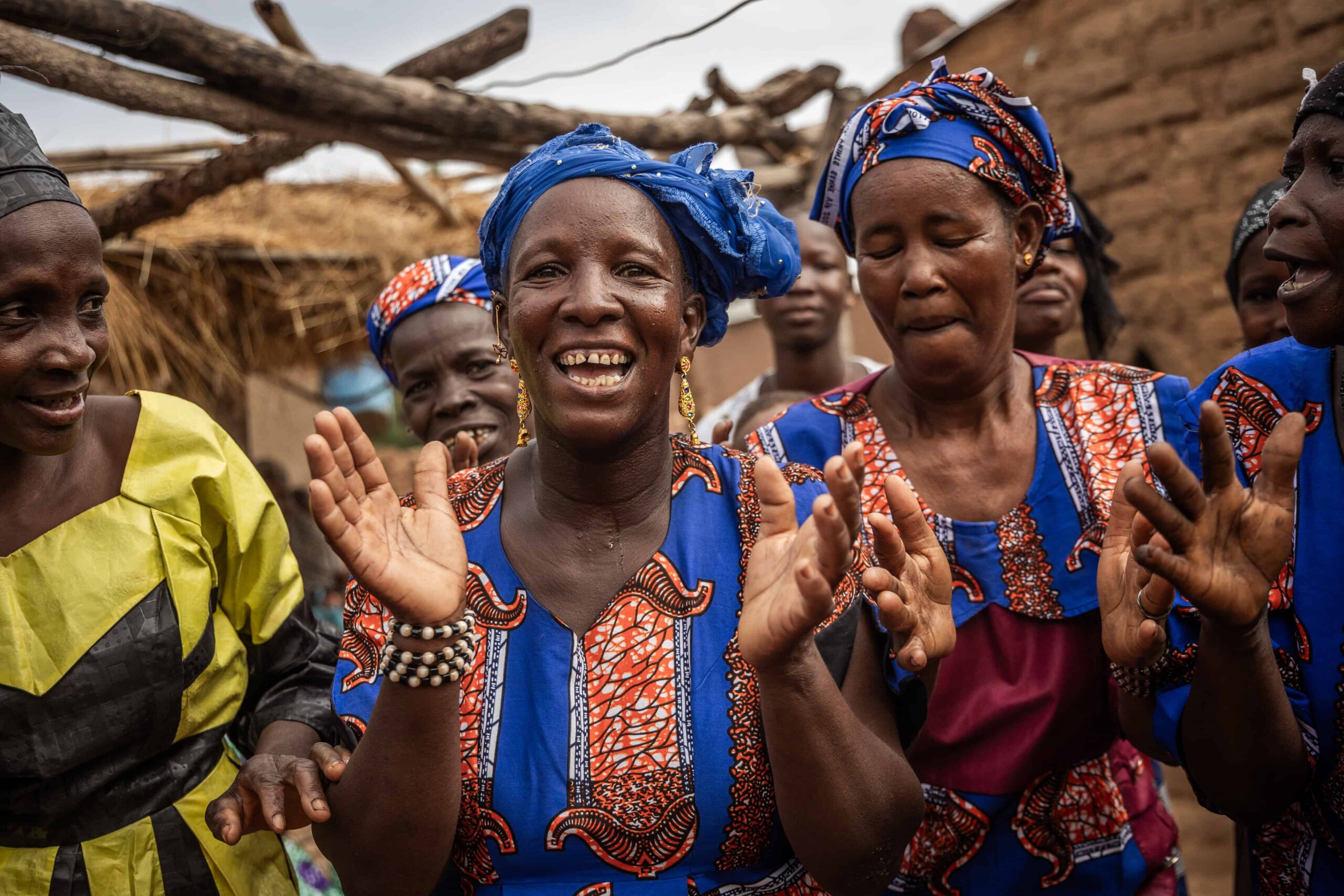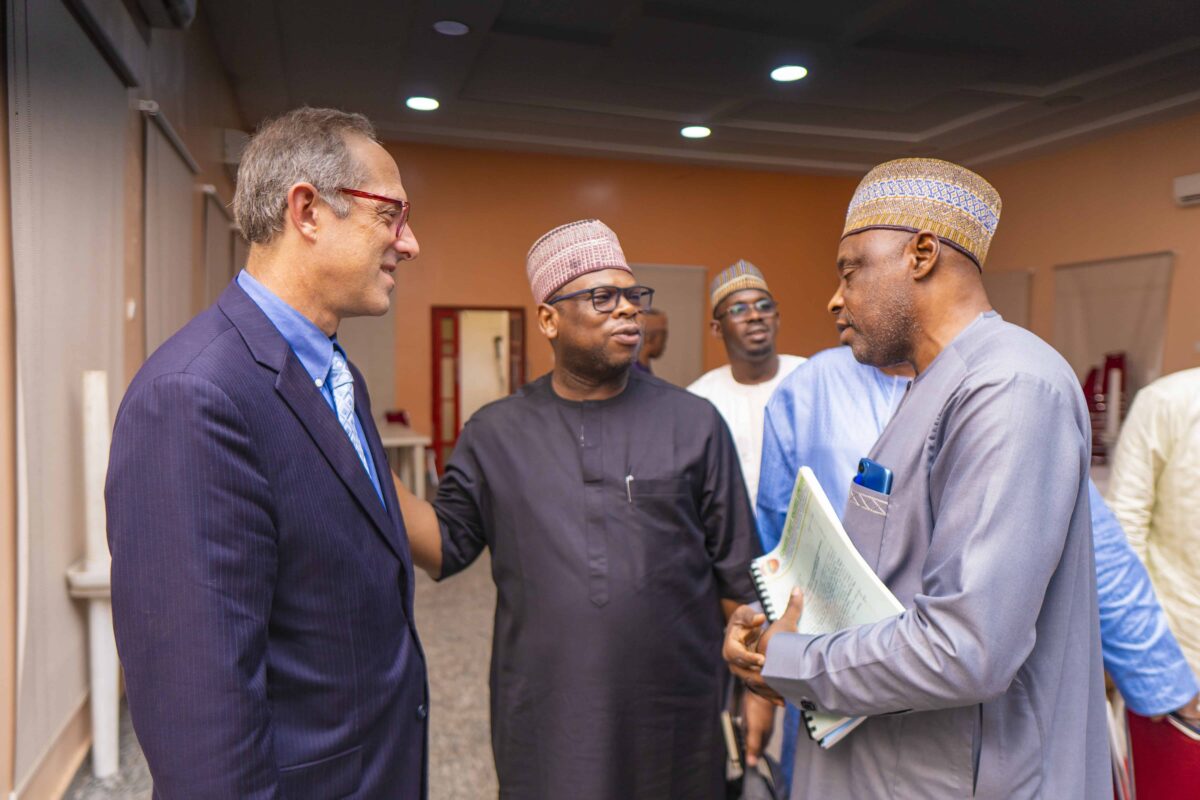Sobre Poderia 25, 2023, o Nigerian Ministry of Education celebrated the launch of a National Reading Framework to improve early grade reading outcomes with an event in Abuja.
The framework is the culmination of years of collaboration between the Ministry and the U.S. Agência para o Desenvolvimento Internacional. The Nigerian Educational Research and Development Council - under the Federal Ministry of Education - began trabalharing on o National Reading Framework com o USAID-funded Northern Education Initiative Plus (2015-2020) and finished it with the support of the USAID-APRENDA a Ler programa.
O framework links Nigeria with the Global Proficiency Framework for Reading towards achieving Objetivo de Desenvolvimento Sustentável 4. It also ensures that Nigerian pupils are assessed using the same standards as their counterparts from around the world. It addresses governments at all levels, head teachers, professores, pais, e a comunidade.
The National Evaluation Framework for Reading is at the core of the overall framework. It outlines the reading skills that must be included in any reading curricula, textbooks and other reading materials for Nigerian pupils. O evaluation framework was developed by classroom teachers, especialistas em currículo, measurement and evaluation specialist and language experts from 10 language groups across the country.
O Ministro da Educação, Mallam Adamu Adamu, addressed attendees at the event and emphasized the importance of the framework for the Nigerian education system.
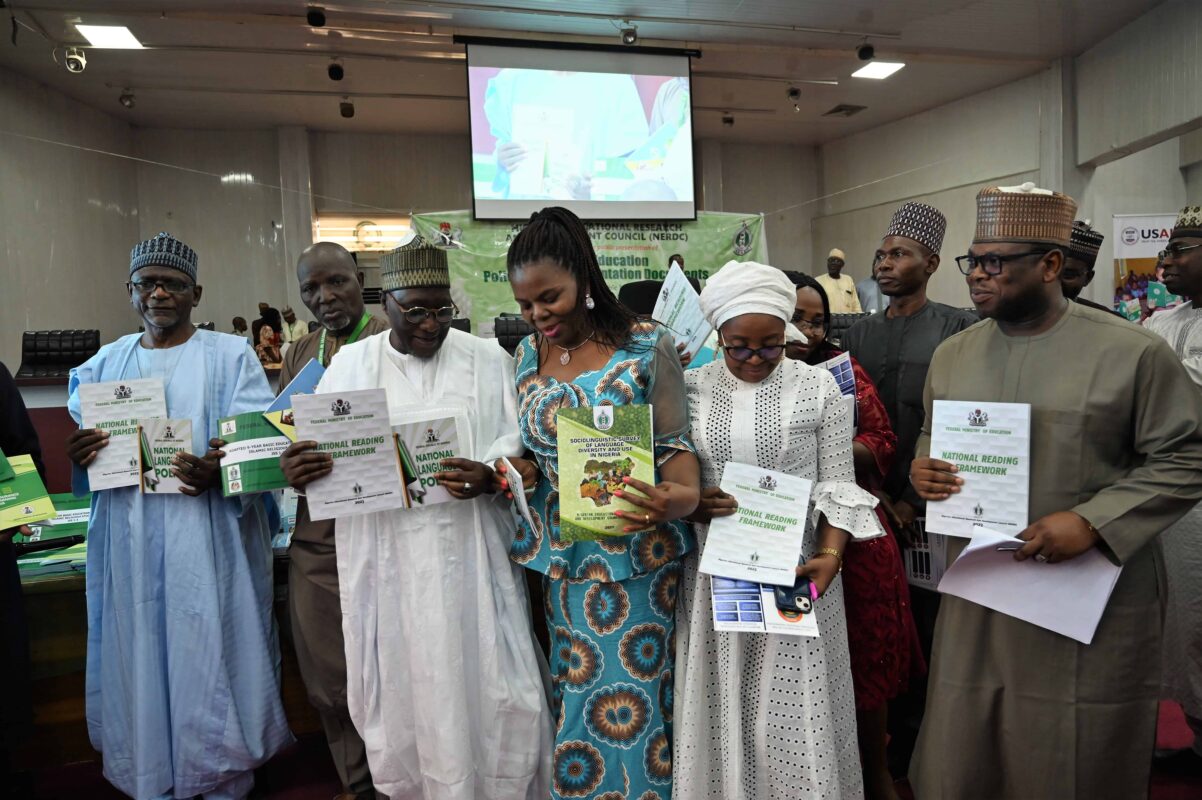
“Through this framework, Nigeria now has a basis for equivalent scores on different reading assessments. The reading performance of the Nigerian child can now be assessed and compared over time, while improvements are being monitored,” ele disse.
Expressing his contentment at the event, the Executive Secretary of Nigerian Educational Research and Development Council (NERDC), Prof.essor Ismail Junaidu, disse, “[The framework] ensures pupils across Nigeria develop reading skills based on the same standards. Nós são happy to have worked with development partners including USAID-LEARN to Read to achieve this milestone.”
Tele USAID-LEARN to Read project is trabalhando to strengthen, scale and sustain improvements and baseado em evidências practices in early grade reading outcomes for about 3.5 million Primary 1 to Primary 2 pupils in Nigeria.
Em seu discurso, the Chief of Party for a USAID-LEARN to Read project, Nurudeen Lawal congratulated the Federal Ministry of Education and NERDC for the achievement. Ele reiterated USAID’s commitment to partner with the Nigerian governo through the USAID-LEARN to Read project and to improve reading outcomes for all Nigerian children.
Lawal called on governments at different levels to consider revising the curricula for early-grade Reading in all languages of instruction; allocate adequate time on school timetables for teaching of reading every week, and ensure pupils spend more time reading independently. He identified the need to develop, print, disseminate and ensure access to high-quality reading materials; train teachers on evidence-based instructional practices on reading; and establish grade-specific performance standards for language of instruction.
The Minister of Education was joined at the event by other key stakeholders in the education sector, incluindo o Permanent Secretary of the Federal Ministry of Education, Andrew David Adejoh; o Executive Secretary for NERDC, Prof Ismail Junaidu; Executive Secretary of the Universal Basic Education Commission, (UBEC), Dr Haeuid Bobboyeu; the Executive Secretary of Tertiary Education Trust Fund, Arch. Sonny Echono; Registrar of the Teachers Registration Council of Nigeria, Professor Josiah Olusegun Ajiboye; representatives from the National Universities Commission, the National Council for Colleges of Education, e outro development partners.
Criativos associados internacionais, who implements the USAID-LEARN to Read project, has implemented education programs in Nigeria for a decade, including Northern Education Initiative (2009-2014), Programa de resposta a crises educacionais (2014-2018), and Northern Education Initiative Plus (2015-2020).
